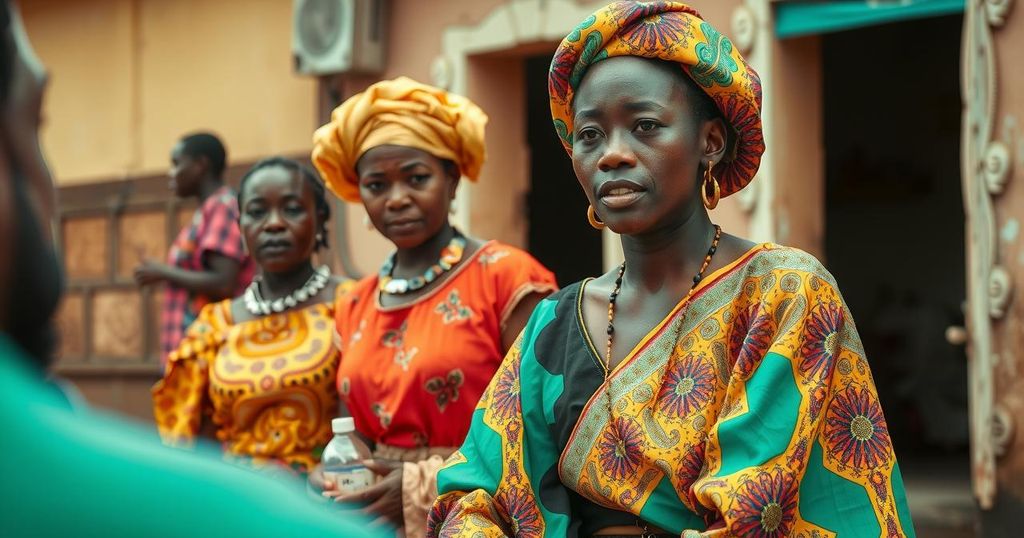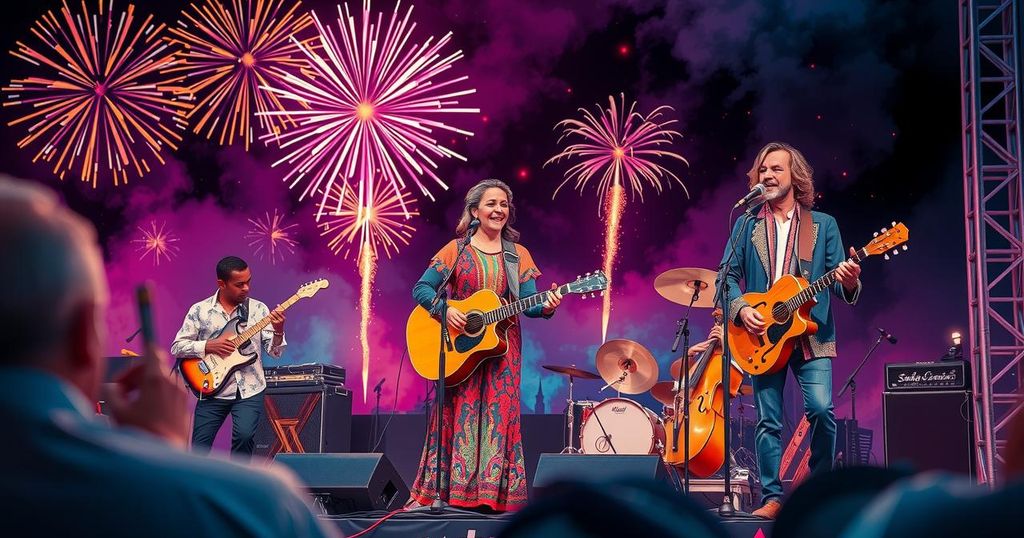The Evolution of Ghanaian Cinema: Must-See Films Since 2010
Since 2010, Ghana’s film industry has significantly evolved, producing influential films that merge tradition with modern storytelling. Featured films such as “Ties That Bind,” “The Cursed Ones,” and “The Burial of Kojo” exemplify this growth, reflecting cultural relevance and gaining international acclaim.
Ghana’s film industry has notably progressed since 2010, producing a multitude of films that intertwine rich traditions with modern narratives. This evolution has given rise to significant works that stand out for their quality and cultural depth. Below is a selection of noteworthy Ghanaian films released post-2010, chosen for their global resonance and cultural significance.
Ties That Bind (2011) tells the poignant story of three mothers, played by Kimberly Elise and Omotola Ekeinde, who overcome the tragic loss of their children while restoring a village clinic. The film, featuring Ghanaian actor John Dumelo, won numerous accolades including ‘Best Feature Film’ at the 2011 Ghana Movie Awards.
The Destiny of Lesser Animals (2011) follows Inspector Koomsin, a police detective driven by a quest to reclaim his dreams amidst crime and corruption. The film stars Fred Amugi and Abena Takyi, showcasing a blend of drama and suspense in a gripping narrative.
Contract (2012) revolves around a wealthy bachelor who desires a child without marriage. His arrangement with a surrogate spirals into unexpected emotional complexities. Garnering six nominations at the Africa Movie Academy Awards, it won Best Film at the Africa Magic Viewers’ Choice Awards.
Silver Rain (2015), directed by Juliet Asante, centers on the friendship of Adjoa, a street girl, and Bruce, a privileged heir. Their bond challenges social disparities, and the film received multiple nominations at the Africa Magic Viewers’ Choice Awards for its profound themes.
The Cursed Ones (2015) depicts a disheartened journalist uncovering the truth behind a young girl labeled a witch in a community led by a corrupt pastor. The film critiques superstitions and societal hypocrisy, featuring actors such as Oris Erhuero and Ama K. Abebrese, and won the Jury Award for Human Rights and Social Commentary.
Children of the Mountain (2016) tells the gripping tale of a young mother, Essuman, who faces societal rejection while seeking medical aid for her son. Directed by Priscilla Anany, the film won first prize at the acclaimed Tribeca Film Festival.
Keteke (2017), a comedy-drama directed by Peter Sedufia, brings a nostalgic look at the 1980s. It follows a couple’s hilariously tumultuous journey to secure the birth of their child, receiving international recognition at film festivals including the Berlinale.
Azali (2018) sheds light on child trafficking through the harrowing story of a 14-year-old named Amina. Escaping an arranged marriage, she faces dire consequences, and the film was submitted as Ghana’s entry for Best International Feature at the Academy Awards.
The Burial of Kojo (2018), written and directed by Blitz Bazawule, is a poignant narrative steeped in magical realism. It tells the story of Esi, who reflects on her father’s troubled past and demise while navigating between dreams and reality. This film premiered at the Urban Film Festival and became a notable entry on Netflix.
Gold Coast Lounge (2019) features a family’s struggle to legitimize their business amidst government intervention. This afro-noir film, directed by Pascal Aka, won multiple awards at the Ghana Movie Awards including Best Feature Film.
The Perfect Picture: 10 Years Later (2019) is a sequel to the original 2009 film. It reunites three women now facing new challenges as they enter their forties. The film was nominated for an Africa Magic Viewers Choice Award, with Gloria Sarfo winning Best Supporting Actress for her role.
The Ghanaian film industry has made remarkable strides since 2010, highlighted by a blend of tradition and modern storytelling across various genres. The listed films not only showcase the artistic talents and narratives emerging from Ghana but also address significant social issues, gaining both national and international recognition. These films serve as pivotal representations of Ghana’s cultural landscape, marking the industry’s evolution within the global cinematic space.
Original Source: www.ghanaweb.com




Post Comment